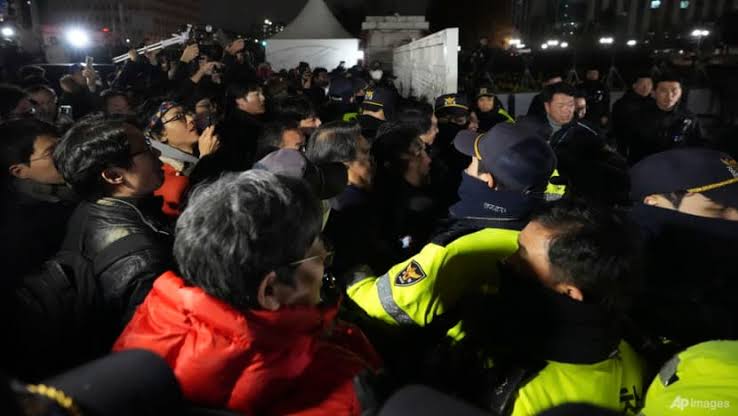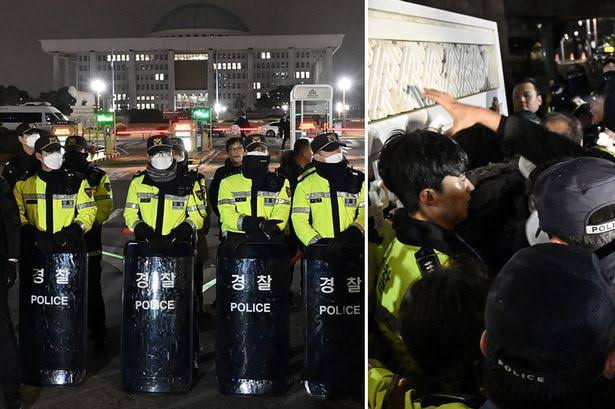South Korea, a vibrant and technologically advanced country, is renowned for its cultural heritage, modern cities, and beautiful landscapes. However, like any nation, it faces challenges and crises that may arise unexpectedly. In recent years, South Korea has had to deal with emergencies that have prompted national responses ranging from security threats to civil unrest. If you find yourself in South Korea during an emergency, it’s important to be informed and prepared. Below are the top 5 things to note during such critical times in this fascinating country.
1. Understand the Importance of Martial Law in South Korea
In the event of an emergency, South Korea may enforce martial law to maintain order and protect its citizens. Martial law in South Korea has a historical context, particularly during the military dictatorship era in the 20th century. Although the nation is now a democracy, the government still retains the authority to impose martial law in times of extreme threat, such as war or large-scale public unrest.
In the event that martial law is declared, military forces may be deployed across Seoul, the capital of Korea South, and other major cities like Busan to ensure security. During such times, certain rights may be restricted, and curfews might be imposed to prevent chaos and maintain peace. It’s crucial to stay updated on the situation through reliable sources like news outlets or government announcements.

2. Stay Informed Through Local News Channels
In an emergency, the first thing to do is stay informed. South Korea has an excellent infrastructure for communication, and during an emergency, the South Korean government often releases timely and clear updates. News agencies like KBS News, YTN, and MBC News are your go-to sources for updates on emergencies such as natural disasters, political unrest, or any military actions that may impact daily life.
Additionally, keep an eye out for government advisories, especially those related to evacuation plans, the safety of transport routes, or specific instructions for residents and tourists in affected areas. Korean social media platforms like Naver and KakaoTalk can also provide quick updates, but be cautious of misinformation.
3. Know the Safety Protocols for Public Spaces
In any emergency, your safety should be the top priority. If you are in Seoul Republic of Korea or any other part of the country during an emergency, familiarize yourself with evacuation procedures and the locations of emergency shelters. South Korea has robust disaster preparedness systems in place, particularly in large cities.
In case of civil unrest or a military threat, be aware of safe zones such as government buildings, public shelters, and emergency stations, which will be marked with clear signage. Remember, when martial law is enforced, the military may control certain regions and limit access to others, so it’s vital to follow any South Korean regulations closely. Avoid areas where protests or military activity are reported and refrain from engaging in any form of confrontation.
4. Follow Local Authorities’ Instructions During Evacuations
South Korea is one of the most tech-savvy nations in the world, with an advanced communication system that includes everything from early warning systems to emergency alerts. In the case of an emergency evacuation, always follow the guidance provided by local authorities and officials. Whether you’re in Seoul, Busan, or any other part of skorea, evacuations are usually well-organized with designated routes and transport to safety zones.
If martial law is declared, checkpoints will likely be set up, and civilians will be required to pass through military control points. As such, it’s important to carry identification at all times and adhere to the regulations. The korean flags in public spaces can also serve as a sign of authority, guiding you toward safe locations or government-led initiatives.
5. Understand the Legal Implications of Martial Law in South Korea
Martial law in South Korea carries significant legal consequences. If declared, it can drastically change the legal landscape, limiting certain freedoms and imposing strict measures for civilians. Under such a scenario, public gatherings may be prohibited, and the military can arrest individuals without warrant in extreme cases. Knowing your legal rights is essential to avoid any missteps during martial law enforcement.
Moreover, the government may suspend certain civil liberties, such as freedom of speech or assembly. While South Korea is a democracy, the security of the nation is a top priority during times of crisis. It’s essential to remain calm and follow any instructions given by local authorities to avoid potential legal issues. Always ensure that your actions align with the law and that you avoid any behavior that could be seen as a challenge to public order.

Conclusion: Be Prepared and Stay Safe
While South Korea is known for its peaceful and progressive society, understanding the protocols during an emergency is crucial for both locals and visitors. Whether you find yourself in the capital of Korea South, Seoul, or a bustling city like Busan, always stay informed and follow safety procedures.
Martial law in South Korea is an extraordinary measure, typically reserved for extreme situations, and it’s important to know what actions to take if such an event occurs. Stay updated on news, follow the guidance of authorities, and remember that safety is the number one priority. In a country as well-prepared as South Korea, being informed and following the right steps can help ensure that you remain safe during an emergency.
